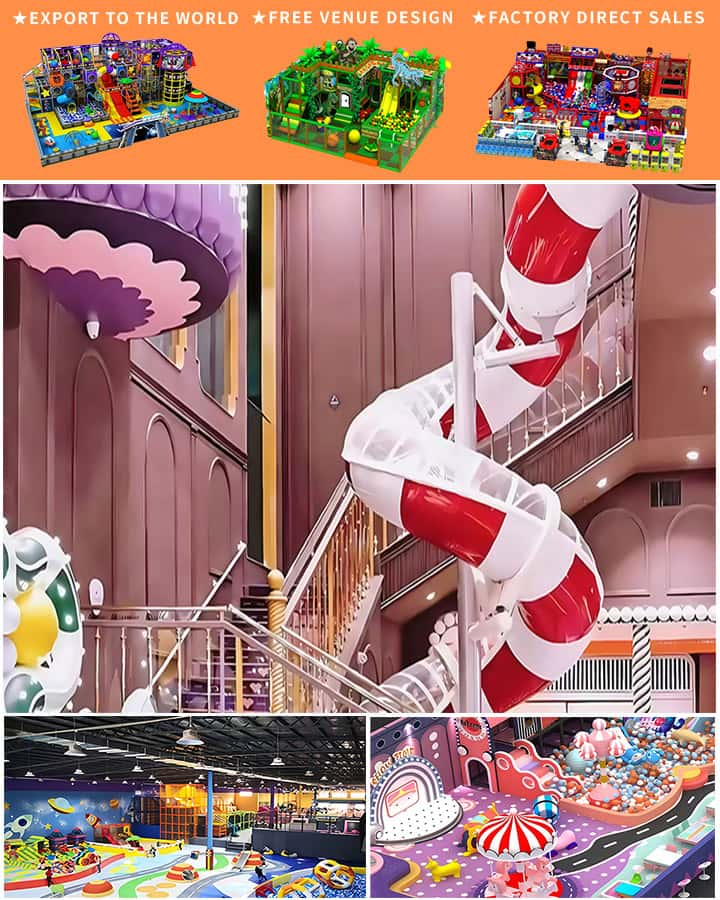Playgrounds are vibrant hubs of activity where children can explore, play, and develop their physical and social skills. The variety of playground equipment available caters to different age groups and interests, ensuring that every child finds something enjoyable. In this article, we’ll explore a comprehensive list of playground equipment names, accompanied by descriptions and images to help you better understand each piece of equipment.
1. Swings
Swings are one of the most iconic pieces of playground equipment. They come in multiple varieties, including:
- Traditional Swings: These consist of a seat suspended from two ropes or chains attached to a horizontal bar.
- Bucket Swings: Also known as tire swings, these use an old rubber tire instead of a seat.
- Baby Swings: Designed for toddlers, these swings have a molded plastic seat with a backrest and safety belt.
- Adaptive Swings: Specially designed for children with disabilities, these swings offer additional support.




2. Slides
Slides add an element of fun and excitement to any playground. Variations include:
- Straight Slides: Simple and direct, these slides are great for younger children.
- Curved Slides: Offering a more challenging experience, these slides often have gentle curves.
- Spiral Slides: These are more advanced and provide a thrilling ride with multiple twists and turns.
- Tunnel Slides: Enclosed slides that give the sensation of sliding through a tunnel.





3. Jungle Gyms
Jungle gyms are structures that encourage climbing and imaginative play. They usually feature:
- Ladder Bars: Horizontal bars used for climbing up and over.
- Horizontal Bars: Used for hanging and swinging.
- Climbing Walls: Inclined surfaces with handholds for climbing.
- Stepping Stones: Raised platforms that require balance and coordination to navigate.

4. Merry-Go-Rounds
Merry-go-rounds provide a fun way for children to spin and enjoy themselves. Variations include:
- Classic Merry-Go-Rounds: With a circular platform and animal figures that spin around.
- Spinning Disks: Flat platforms that rotate when pushed or powered by foot pedals.
- Spring Riders: Animal-shaped seats that move back and forth on springs.



5. Seesaws
Seesaws allow for simple, yet engaging play involving balance and cooperation. Types include:
- Traditional Seesaws: A plank balanced at the center with seating at either end.
- Bench Seesaws: Longer versions that can accommodate more than two riders.
- TetSeesaws: A modern version with four seats and a unique rocking motion.



6. Climbers and Climbing Walls
Climbers and climbing walls challenge children both physically and mentally. Options include:
- Freestanding Climbers: Structures with various holds and grips for climbing.
- Rock Climbing Walls: Simulate real rock formations with designated handholds and footholds.
- Cargo Nets: Made of intertwined ropes and knots, providing a fun and challenging climb.



7. Balance Beams and Walkways
These structures help children develop their balance and coordination:
- Balance Beams: Raised wooden or plastic beams that require steady movement.
- Balance Logs: Stepping stones arranged on a slight angle to challenge stability.
- Wobbly Bridges: Swaying walkways that test balance and agility.



Each piece of playground equipment serves a unique purpose, contributing to the overall fun and developmental value of a playground. Whether it’s swinging high, climbing to new heights, or navigating a seesaw, these structures provide endless enjoyment and learning opportunities for children everywhere.




